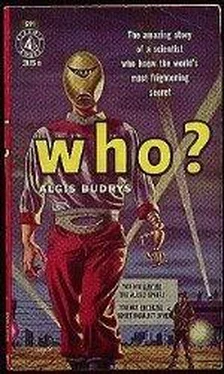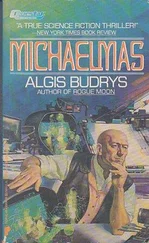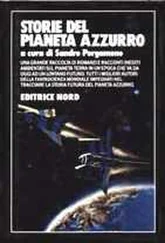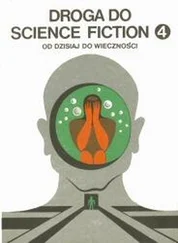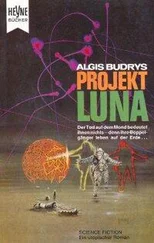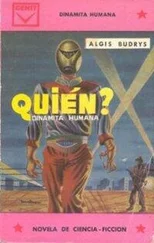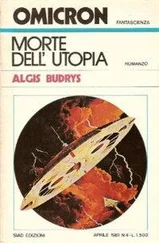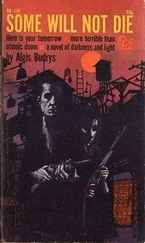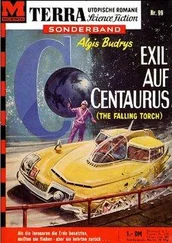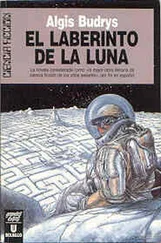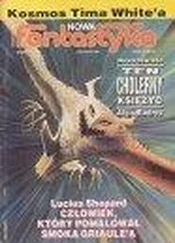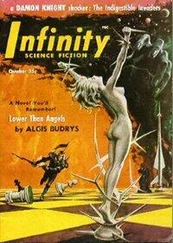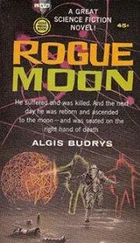It was near the middle of the night. The wind came up from the river, moaning under the filigreed iron bridges, and the weathercocks on the dark old buildings pointed their heads north.
The Military Police sergeant in charge had lined up his receiving squad on either side of the cobbled street. Blocking the street was a weathered concrete gateway with a black-and-white-striped wooden rail. The headlights of the MP super-Jeeps and of the waiting Allied Nations Government sedan glinted from the raised shatterproof riot visors on the squad’s varnished helmets. Over their heads was a sign, fluorescing in the lights:
YOU ARE LEAVING THE ALLIED SPHERE
YOU ARE ENTERING THE SOVIET SOCIALIST SPHERE
In the parked sedan, Shawn Rogers sat waiting with a man from the ANG Foreign Ministry beside him. Rogers was Security Chief for this sector of the ANG administered Central European Frontier District. He waited patiently, his light green eyes brooding in the dark.
The Foreign Ministry representative looked at his thin gold wristwatch. “They’ll be here with him in a minute.” He drummed his fingertips on his briefcase. “If they keep to their schedule.”
“They’ll be on time,” Rogers said. “That’s the way they are. They held him four months, but now they’ll be on time to prove their good faith all along.” He looked out through the windscreen, past the silent driver’s shoulders, at the gateway. The Soviet border guards on the other side — Slavs and stumpy Asiatics in shapeless quilted jackets — were ignoring the Allied squad. They were clustered around a fire in an oil drum in front of their checkpoint shack, holding their hands out to the warmth. Their shroud-barreled submachine guns were slung over their shoulders, hanging clumsily and unhandily. They were talking and joking, and none of them were bothering to watch the frontier.
“Look at them,” the Foreign Ministry man said peevishly. “They don’t care what we do. They’re not concerned if we drive up with an armed squad.”
The Foreign Ministry man was from Geneva, five hundred kilometers away. Rogers had been here, in this sector, for seven years. He shrugged. “We’re all old acquaintances by now. This frontier’s been here forty years. They know we’re not going to start shooting, any more than they are. This isn’t where the war is.”
He looked at the clustered Soviets again, remembering a song he’d heard years ago: “Give the Comrade With the Machine Gun the Right to Speak.” He wondered if they knew of that song, over on their side of the line. There were many things on the other side of the line that he wanted to know. But there was little hope for it.
The war was in all the world’s filing cabinets. The weapon was information: things you knew, things you’d found out about them, things they knew about you. You sent people over the line, or you had them planted from years ago, and you probed. Not many of your people got through. Some of them might. So you put together the little scraps of what you’d found out, hoping it wasn’t too garbled, and in the end, if you were clever, you knew what the Soviets were going to do next.
And they probed back. Not many of their people got through — at least, you could be reasonably sure they didn’t — but, in the end, they found out what you were going to do next. So neither side did anything. You probed, back and forth, and the deeper you tried to go, the harder it was. For a little distance on either side of the line, there was some light. Farther on, there was only a dark fog. And some day, you had to hope, the balance would break in your favor.
The Foreign Ministry man was taking out his impatience in talk. “Why the devil did we give Martino a laboratory so near the border in the first place?”
Rogers shook his head. “I don’t know. I don’t handle strategy.”
“Well, why couldn’t we get a rescue team of our own in there after the explosion?”
“We did. Theirs just got in first. They moved fast and took him away.” And he wondered if that had been a simple piece of luck.
“Why couldn’t we take him back from them?”
“I don’t handle tactics on that level. I imagine we might have had trouble, though, kidnapping a seriously hurt man out of a hospital.” And the man was an American national. Suppose he’d died? The Soviet propaganda teams would have gone to work on the Americans, and when the next ANG bill came up in their Congress, they might not be so quick with their share of next year’s budget. Rogers grunted to himself. It was that kind of war.
“I think it’s a ridiculous situation. An important man like Martino in their hands, and we’re helpless. It’s absurd.”
“That’s the kind of thing that gives you your work to do, isn’t it?”
The Foreign Ministry representative changed his tack. “I wonder how he’s taking it? He was rather badly knocked about in the explosion, I understand.”
“Well, he’s convalescent now.”
“I’m told he lost an arm. But I imagine they’ll have taken care of that. They’re quite good at prosthetics, you know. Why, as far back as the nineteen forties, they were keeping dogs’ heads alive with mechanical hearts and so forth.”
“Mm.” A man disappears over the line, Rogers was thinking, and you send out people to find him. Little by little, the reports come trickling in. He’s dead, they say. He’s lost an arm, but he’s alive. He’s dying; We don’t know where he is. He’s been shipped to Novoya Moskva. He’s right here, in this city, in a hospital. At least, they’ve got somebody in a hospital here. What hospital?
Nobody knows. You’re not going to find out any more. You give what you have to the Foreign Ministry, and the negotiations start. Your side closes down a highway across the line. Their side almost shoots down a plane. Your side impounds some fishing boats. And finally, not so much because of anything your side had done but for some reason of their own, their side gives in.
And all this time, a man from your side has been lying in one of their hospitals, broken and hurt, waiting for you to do something.
“There’s a rumor he was quite close to completing something called a K-Eighty-E-Eight,” the Foreign Ministry man went on. “We had orders not to press too hard, for fear they’d realize how important he was. That is, in the event they didn’t already know. But, of course, we were to get him back, so we couldn’t go too soft. Delicate business.”
“I can imagine.”
“Do you think they got the K-Eighty-Eight out of him?”
“They have a man on their side called Azarin. He’s very good.” How can I possibly know until I’ve talked to Martino? But Azarin’s damned good.
He wished he knew more about Azarin. He wished he knew more about the Soviets. Everything he knew about the Russo-Chinese “Incident” of a decade ago, for instance, told him it had been a war, and that the Russians had lost it. But, if so, then why was the capital city New Moscow and not New Peking? Why was the army half Chinese but the government Caucasian? If there had still been Western embassies and trade missions behind the Curtain, it might be possible to know. But there was none of that. There was nothing but opacity in that land.
Out beyond the gateway, two headlights bloomed up, turned sideward, and stopped. The rear door of a Tatra limousine snapped open, and at the same time one of the Soviet guards went over to the gate and flipped the rail up. The Allied MP sergeant called his men to attention.
Rogers and the Foreign Ministry representative got out of their car.
Читать дальше
